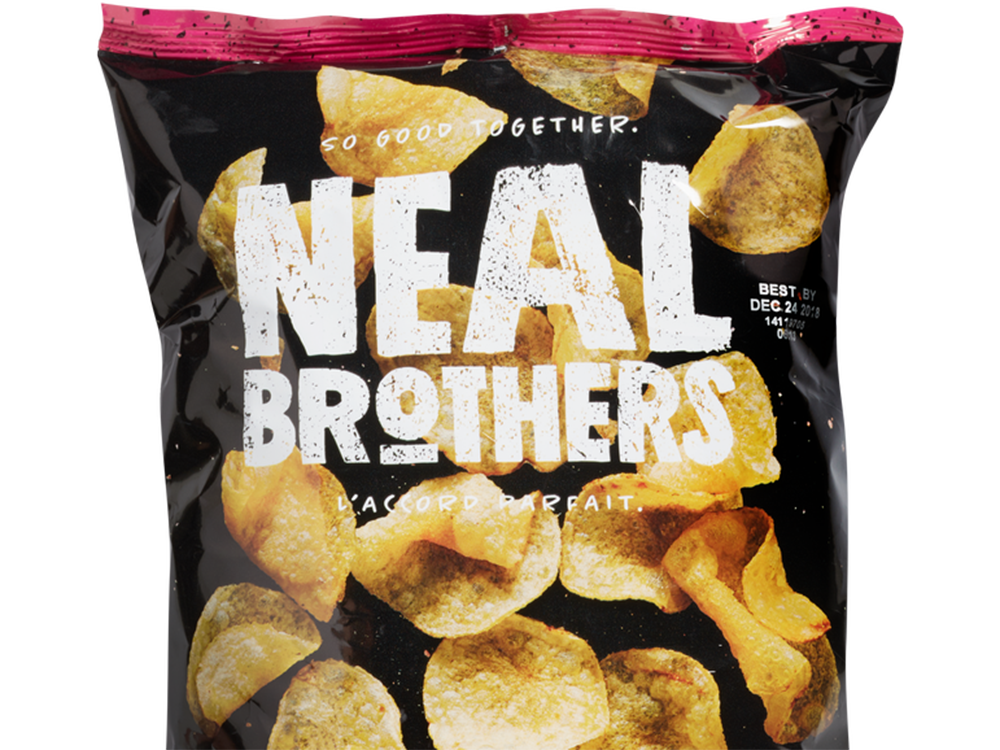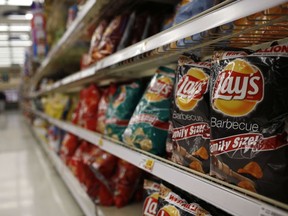Frito-Lay’s standoff with Loblaw ends up flooding an Ontario chip company with new orders

Neal Brothers Foods scrambled to ramp up production and find more trucking capacity after Loblaw’s ‘abnormally’ large order

Article content
An Ontario potato-chip company says its business is surging due to a feud between Canada’s largest grocer, Loblaw Companies Ltd., and global snack giant Frito-Lay.
Advertisement
Story continues below
This advertisement has not loaded yet, but your article continues below.
Article content
Neal Brothers Foods Inc., based in Richmond Hill north of Toronto, said snack shipments to Loblaw increased about 50 per cent in February compared to the same time last year. The sudden increase in sales volumes would have been even higher, but the company wasn’t able to fully meet Loblaw’s needs following its break with one of the biggest snack manufacturers in the world, co-founder Peter Neal said.
The Canadian wing of PepsiCo Inc. has stopped shipping its Frito-Lay roster of snack brands to Loblaw for more than two weeks after the grocer refused to accept price increases.
Frito-Lay — which makes Lays, Doritos, Miss Vickies and Tostitos, among other brands — has insisted Loblaw pay more to offset the swelling cost of ingredients, labour and transport. But Loblaw, which negotiates a wholesale price with suppliers and then sets its own retail price in stores, said it has been inundated with requests from suppliers looking for more money and has had to push back to maintain value for consumers.
Advertisement
Story continues below
This advertisement has not loaded yet, but your article continues below.
Article content

After the Frito-Lay decision, Loblaw requested an “abnormally” large order volume from Neal Brothers, and the company scrambled to ramp up production and find more trucking capacity, Neal said. The chip company was only able to fill 40 per cent of the initial order and is currently working on filling the rest, he said.
In LinkedIn posts this week, Neal said the extra orders sent his team into “emergency” mode, adding that his team worked 60 hours last week to respond “to a crisis in the snack section of a major grocer.” He said he “beamed with pride” this weekend upon seeing entire sections of shelves filled with his products.
It’s a “shot in the arm” for a local chip brand that was typically shelved in the organic aisle, but has since been promoted to the main snack section.
Neal said the showcase with a retail chain that controls about 35 per cent of all Canadian grocery sales is a chance to grow his company’s market share. On top of the growth in snacks, the company said its shipments of salsa to Loblaw also increased more than 50 per cent in February compared to February 2021.
Advertisement
Story continues below
This advertisement has not loaded yet, but your article continues below.
Article content
“When you wipe out the competition in a given retailer,” he said, “there’s less options for consumers and the hope is they will pick up our bag, try it, and if they like it, we’ve gained some new customers.”
Industry insiders say the standoff between Frito-Lay and Loblaw is representative of broader tensions in the Canadian food business, as grocers and suppliers grapple with rising inflation across the supply chain.
Suppliers have long complained that Canada’s grocery industry is too consolidated, allowing a handful of dominant chains to make unfair demands in negotiations because manufacturers can’t afford to lose them as a customer.
But with production costs on the rise, manufacturers appear more willing to take the “nuclear” option and stop shipping as retribution against a big grocer that won’t accept a price increase.
Advertisement
Story continues below
This advertisement has not loaded yet, but your article continues below.
Article content
“Their battle currently is not my battle,” Neal said of Frito-Lay, which he described as a “massive, international” company. “I’m sure, if the shoe was on the other foot, that a competitor would do the same thing … I’ve got no allegiance to them.”
Neal said his company is just responding to the needs of its main retailers.
The hope is (consumers) will pick up our bag, try it, and if they like it, we’ve gained some new customers
Peter Neal
“That’s my bread and butter. That’s what pays the bills for my business and ensures that I can pay my employees,” he said, adding that Loblaw represents about a third of his business.
Loblaw is framing the Frito-Lay episode as a fight for value at a time when food price inflation is the highest in more than a decade. The company said it uses a team of commodity experts to analyze the input costs for a product and determine whether a supplier’s price increase is justified.
Advertisement
Story continues below
This advertisement has not loaded yet, but your article continues below.
Article content
-

Loblaw expects sales to grow amid high food inflation, pandemic
-

Frito-Lay vs. Loblaw fight underscores importance of grocery code of conduct negotiations, leaders say
-

Potato chip giant Frito-Lay cuts off Loblaw in dispute over price hikes
“This can lead to difficult conversations and, in extreme cases, suppliers don’t ship us products,” spokesperson Catherine Thomas said in a statement on Feb. 18. The retailer didn’t respond to a request for comment on this story.
Both Loblaw and Frito-Lay have reported profit growth in recent earnings updates. Last month, Frito-Lay North America said fourth-quarter operating profit increased 10 per cent year over year despite higher commodity costs that produced an eight-per-cent drag on growth.
Last week, Loblaw — a network of more than 2,400 stores, including Shoppers Drug Mart, No Frills and Real Canadian Superstore — reported a 30.1-per-cent jump in profits during its fourth quarter, with adjusted net earnings of $515 million beating the previous year by $119 million.
• Email: [email protected] | Twitter: jakeedmiston
Advertisement
Story continues below
This advertisement has not loaded yet, but your article continues below.








